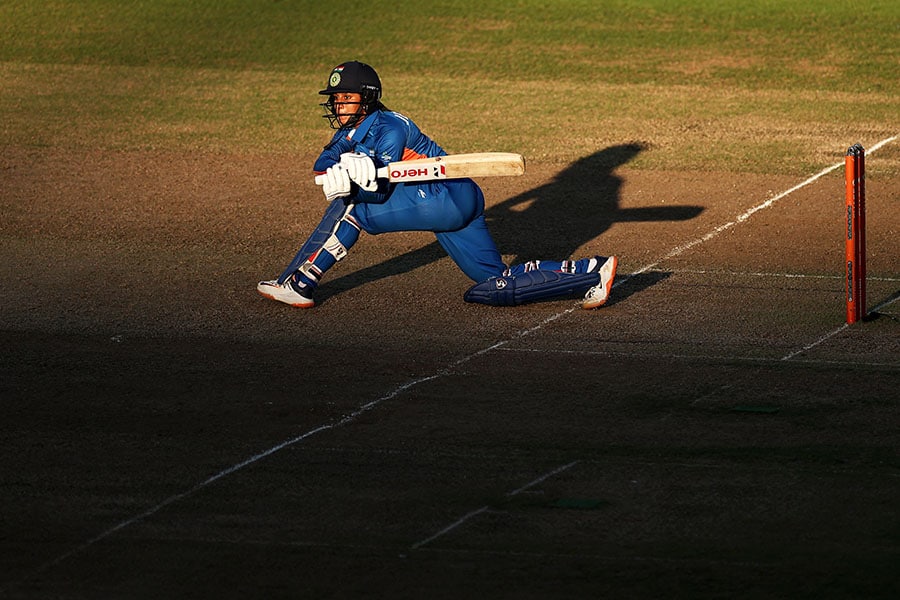
Setbacks will make you stronger, better: Jemimah Rodrigues
Jemimah Rodrigues, 22 and a frontline batter for the Indian cricket team, on humility and how to handle success at a young age
 (File) Jemimah Rodrigues of Team India plays a shot during the Cricket T20 - Gold Medal match between Team Australia and Team India on day ten of the Birmingham 2022 Commonwealth Games at Edgbaston on August 07, 2022 on the Birmingham, England.
Image: Ryan Pierse/Getty Images
(File) Jemimah Rodrigues of Team India plays a shot during the Cricket T20 - Gold Medal match between Team Australia and Team India on day ten of the Birmingham 2022 Commonwealth Games at Edgbaston on August 07, 2022 on the Birmingham, England.
Image: Ryan Pierse/Getty Images
Q. When you were young, you used to play both cricket and hockey. When did you pick the former?
Growing up, I was really good at both cricket and hockey. There were days I would go to the hockey ground in the morning, finish my match, change, have a little lunch my mum made, and go on to the cricket ground. But once I started touring with the cricket team, the schedules for both sports were clashing, and I had to make a choice because it was difficult to adjust. My dad made me sit down one day and told me, "It's your choice, and we'll back you no matter what." Since I reached a higher level in cricket than hockey—playing the inter-zonal as opposed to the state level in hockey—I went ahead with cricket. It was a difficult decision for an 11-year-old, as I loved both sports. But, turns out, it wasn’t a bad decision after all.
Q. Who were your mentors and role models in those early years, and what were some of the key lessons that you learnt from them?








